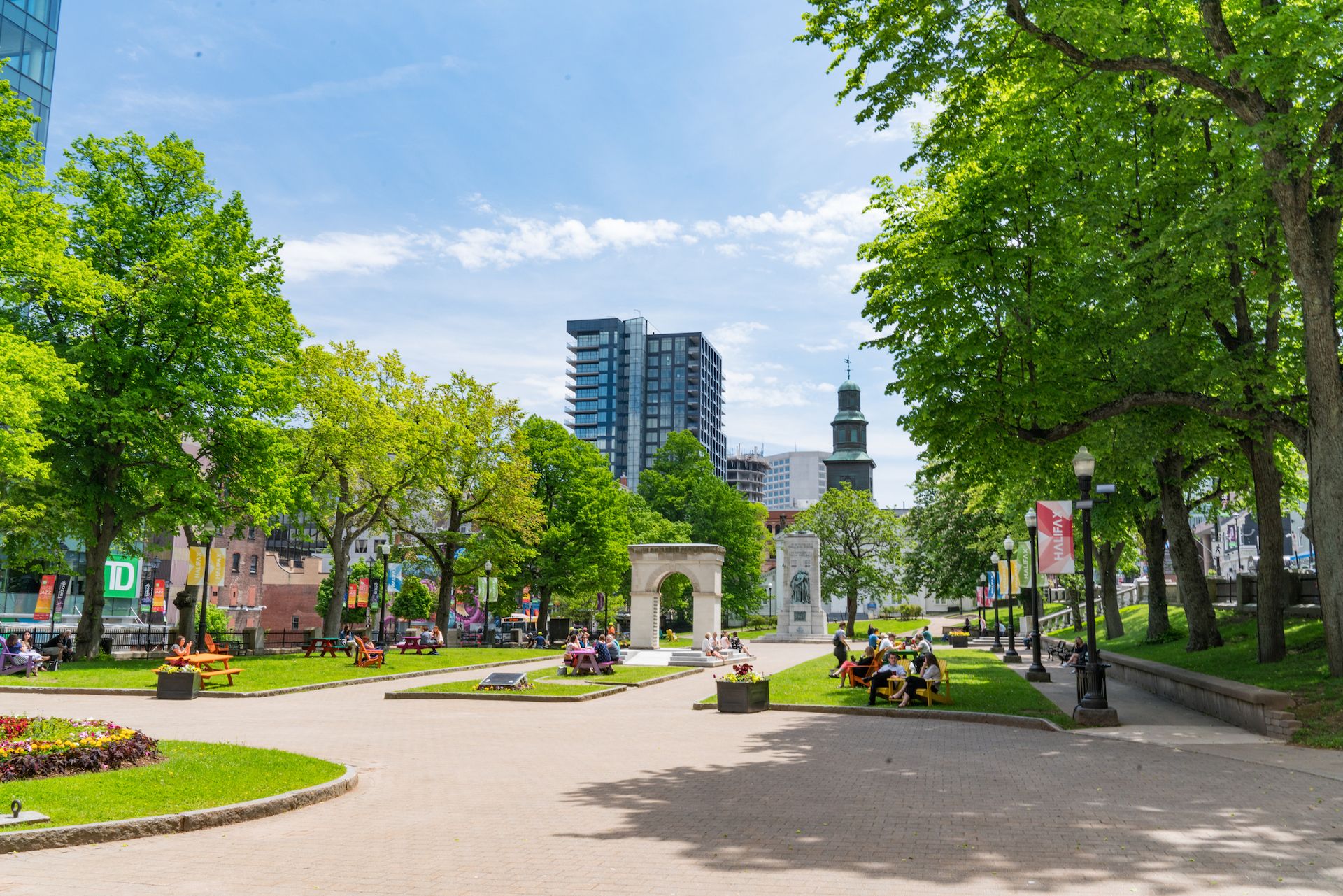Story
March 22, 2021
Building a National Civic Commons Strategy: Insights from the Future Cities Canada Forum 2021

By Future Cities Canada
At this pivotal moment, it’s time to regroup and refresh our approach to the Civic Commons.
Whether city builders were prepared for it or not, this past year has forced a collective re-think of our common purpose. Specifically, the pandemic continues to dramatically impact how we gather together within networks of public places and facilities – our Civic Commons. The old adage proved true: we don’t know what we’ve got, until it’s gone. Gathering together in public has proven to be a precious element of feeling connected to our communities, and it’s one we can no longer take for granted.
It’s with this renewed focus in mind that Future Cities Canada is revitalizing our approach to our Civic Commons work, one that provided the foundation for Future Cities Canada to embark on its mission to catalyze transformative change in cities. We return to it now at this critical moment of shaping how cities will function, post-pandemic. It’s time to enter the second phase of building a cohesive, National Civic Commons Strategy for Canada. Future Cities Canada will advance a strategy to unlock the potential for Canada’s Civic Commons to be at the heart of our country’s recovery and resilience in the post-COVID era. We will build a shared vision, identify key levers for systems-level change, and work collaboratively to achieve the necessary legislative, policy, and/or programmatic reform.
Last month, Future Cities Canada hosted our annual Forum, a gathering of over 60 partners, advisors and other civic leaders and key stakeholders from all sectors – public, private and non-profit – to come together to identify possible levers for change, as well as common barriers that arise in this work. Orit Sarfaty, Chief Program Officer at Evergreen, frames the purpose of the Forum as collectively identifying “What flips the switch to transform potential into reality.”
Discussions had three areas of focus
- Community hubs
- Natural assets
- Health & wellness for children and seniors
The aim for each area of focus was to identify the interventions required to most effectively press on the levers of change. What’s needed, by whom and where? What prevents us from creating change at the pace and on a scale to meet challenges? By sharing insights and wisdom across sectors, participants mapped out what enables this work, and what inhibits it.
Key Learnings
- Inclusive Civic Commons are made possible when communities have access to assets, power and capital – Equity and Inclusion in our public spaces were strong themes at the Forum, with many participants emphasizing the need for inclusive citybuilding and planning processes right from the start of projects, rather than trying to ‘add’ inclusion considerations at a later stage.
- Community innovation and hyper-local Civic Commons projects are powerful, but need an enabling infrastructure and catalyzing vision to scale up efforts and impacts – Many participants talked about the tremendous promise of community-level action, and the connected opportunity to enable that work by cutting ‘red tape’, and making it easier for local leaders to collaborate and learn from each other.
- Creative, innovative and flexible capital and financing opportunities are critical to enable this work – We heard from participants that Civic Commons projects are often multi-faceted, and don’t necessarily fit neatly into existing funding structures.
- We need better ways to measure and document the resilience and other benefits of investing in community infrastructure – Many Forum participants highlighted the need for streamlined ways to capture the multiple and inter-connected benefits of investing in the Civic Commons, from improved climate resilience to social development and ecological services.
As one Forum attendee, Diane Roussin, Project Director from The Winnipeg Boldness Project puts it, “When you create intentional, funded, structural space to develop relationships – that’s where trust gets built across different sectors. You need that solid trust to be able to take the risk and to experiment and to screw up and succeed.”
The way forward
The Forum reinforced that our Civic Commons can be a powerful part of our response to the challenges cities face, especially in this moment of national recovery and renewal. In developing a National Strategy, Evergreen and Future Cities Canada partners will map our way forward in the context of some of the most pressing challenges and opportunities facing Canada’s Civic Commons. These include: climate change & urban resilience; inequity, Anti-Black Racism, and Indigenous Reconciliation; and wealth and income inequality.
With the right focus and investment, building and re-energizing community hubs can go a long way to improve quality of life and provide one opportunity to right historical injustices. The insights from the Forum will help to shape the design of upcoming Action Labs later in 2021, and put the wheels in motion for enacting a larger National Strategy.
The Civic Commons is where we connect and build trust in community. What’s next will be about more than a patchwork of solutions – it will take sustained, bold and courageous effort from all of us, together. We can’t wait to get started.